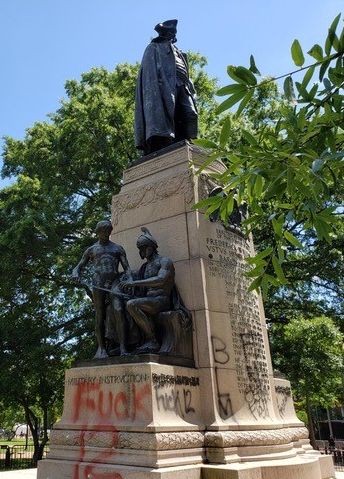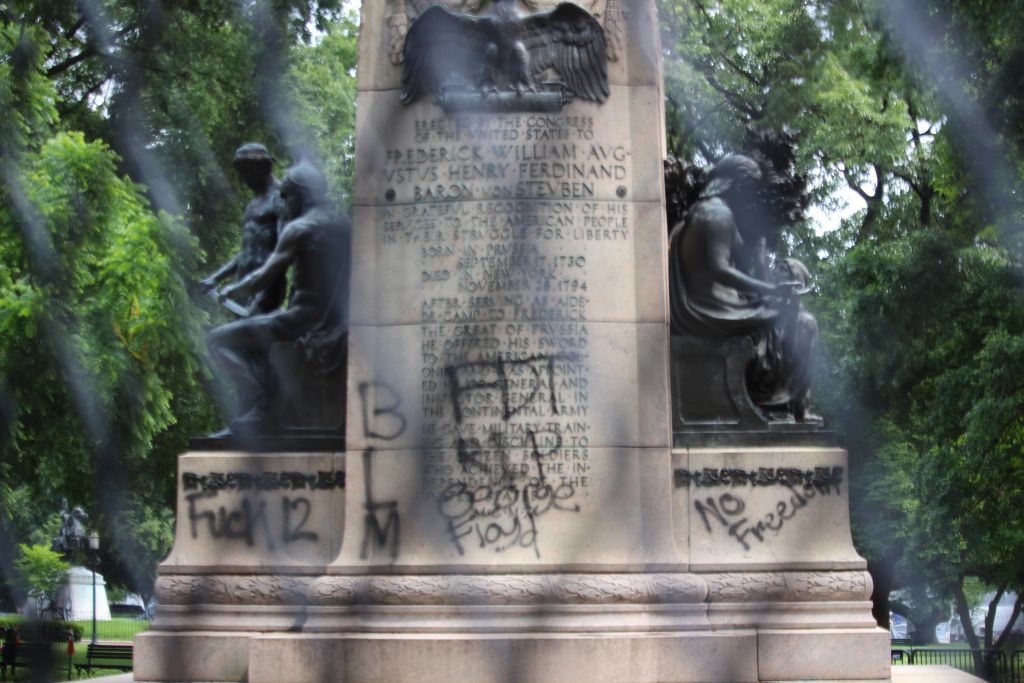Authors:
Historic Era: Era 10: Contemporary United States (1968 to the present)
Historic Theme:
Subject:
June 2020 | Volume 65, Issue 3


Authors:
Historic Era: Era 10: Contemporary United States (1968 to the present)
Historic Theme:
Subject:
June 2020 | Volume 65, Issue 3
We wonder which is worse: authorities abusing our Constitutional rights or protesters wantonly damaging historic monuments dedicated to young revolutionaries such as Lafayette and Kosciuszko?
Many people believe it was a violation of First Amendment rights for the government to attack and arrest citizens protesting the murder of George Floyd and what they see as systemic racism in many police departments. To do so for the purpose of a frivolous and ineffective photo opportunity seems inappropriate.

But in the tsunami of comments about these events, very few in the media have mentioned another sad and ironic development during these events: the desecration of historic property.
People ignorant of history look at statues and think they are quaint and outdated memorials to long dead white men. But who were these men honored in Lafayette Square? It turns out three of them were revolutionaries and immigrants fighting for justice and freedom.
First of all, Lafayette Square honors the 19-year-old French nobleman who gave up a comfortable life to come to America to help fight against monarchy and the excessive privileges of the aristocracy that he himself enjoyed.
Lafayette also helped create better ties between France and our young nation. The funds, soldiers, and ships sent by France were critical to winning our freedom.
As Gil Klein notes in this issue, Lafayette was also an abolitionist who helped convince Washington to free his slaves in his will. And, at the beginning of the French Revolution, with Jefferson’s help, Lafayette wrote the “Declaration of the Rights of Man and of the Citizen.”
Lafayette’s actions were selfless and noble and had important consequences, which is why generations have admired him. It’s too many the demonstrators didn’t know more about him.
See "Lafayette Square: Seven Acres of History” by Gil Klein in this issue.
Also badly defaced in Lafayette Square was the statue of Friedrich Wilhelm von Steuben, who turned a disorganized rabble of farmers and shopkeepers into a fighting force that defeated the most powerful army in the world. There's a good change we might not have won the Revolution if von Steuben had not taught the Continental Army about military drills, tactics, and discipline.

Von Steuben had been an officer in the Prussian army, wounded, and taken prisoner in the wars against Russia. For his contributions, he was made a baron. But after meeting with Benjamin Franklin in Paris he emigrated